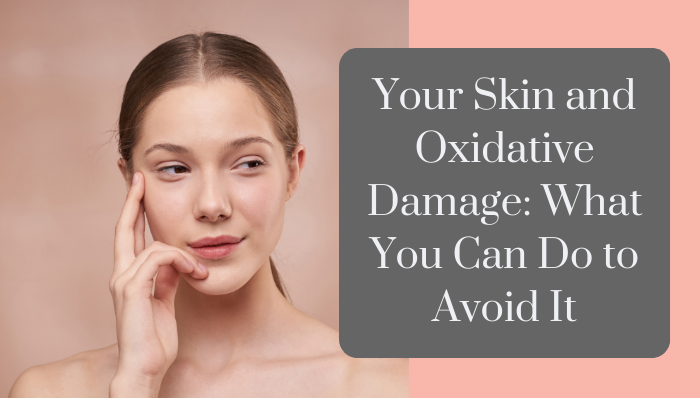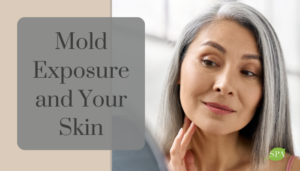Dermatologists and primary care doctors are terrific at diagnosing skin conditions. Unfortunately, they typically focus on treating the symptoms of common skin problems rather than the underlying cause. The result is a propensity to rely on prescriptions such as antibiotics and corticosteroids.
This is a byproduct of conventional medicine’s reliance on medicating patients in lieu of focusing on whole body health. Many chronic conditions could be avoided altogether simply by implementing healthy lifestyle changes. This holistic focus is the goal of naturopathic doctors.
As the title of my book, “Clean Skin from Within,” makes clear, I believe that healthy, glowing skin begins within.
The Dangers of Treating Skin Conditions with Antibiotics

First, over-reliance on antibiotics has created resistance to these medications – even some pimples are antibiotic-resistant. There is also the issue that antibiotics eliminate all bacteria, even the good kind that protect your skin and enhance digestion.
Another potential issue is that antibiotics are intended only to treat bacterial infections. Of course, not all skin problems stem from infections. If your issue is not bacterial in nature and you take antibiotics to treat it, you’re definitely doing more harm than good. For example, Clostridium difficile bacteria, an infection caused by antibiotics, kill around 14,000 Americans every year. Even non-fatal cases suffer from intense diarrhea.
Taking antibiotics when you don’t have an infection raises your risk of a number of side effects, including vaginal yeast infections, diarrhea, vomiting, and upset stomach. These unnecessary prescriptions are responsible for nearly 20 percent of all emergency room visits.
Finally, overusing antibiotics makes them less effective when you actually need them. And yes, there are skin conditions that do call for an antibiotic response.
The signs of a skin infection that may require antibiotics include:
- A high white blood cell count
- Fever or chills
- Painful, swollen, or red wounds
- Pus-filled bumps
- Red or warm skin accompanied by other signs of infection
- Sores or cracks that ooze pus
- Wounds with crusts that are yellow or honey-colored
If you have any of these symptoms, see your doctor to determine if an antibiotic is necessary. In certain circumstances and when indicated, antibiotics can save lives, but let’s save them for when we really need them.
The Dangers of Corticosteroids
Dermatologists often prescribe topical steroids to treat psoriasis, eczema, and rashes. These ointments help reduce inflammation and itching by suppressing the patient’s immune system.
Potential side effects include thinning skin, hyperpigmentation, irritation, and infection. The potential side effects of oral corticosteroids are even more serious and include Cushing disease and hypothalamus-pituitary-adrenal suppression (HPA).
While topical steroids can help relieve itchy and inflamed skin, it can come at a cost when used long term. The real issue with steroids is that they suppress your symptoms while doing nothing to address the underlying problem that caused your skin condition to begin with. If you have a severely inflamed skin, topical steroids can give you some temporary relief. But, with chronic skin issues, it’s important to find out what is triggering the skin eruption and support the body’s innate ability to health with a more integrative approach.
The Dangers of Common Oral Acne Treatments

Before being discontinued in 2009 for its dangerous side effects, doctors issued millions of Accutane prescriptions. The goal was acne treatment but side effects that included psychosis, suicidal behavior, birth defects, and miscarriages were deemed too high a price to pay for clear skin.
Unfortunately, Accutane was just a brand name. The drug is still prescribed under its generic name, isotretinoin, as well as the alternative brand names Absorica, Amnesteem, Claravis, Myorisan, and Zenatane. These drugs remain on the market due to their effectiveness in treating severe acne. However, before people turn to medications with so many severe side effects, I want them to understand their natural options.
Discovering Healthier Skin Solutions
Prescription medications are enticing because they promise a quick solution. It’s much easier to take a pill or use an ointment than it is to make the lifestyle changes necessary to heal your skin from the inside. While prescription and OTC medications have their place and can provide relief, they come with a number of possible side effects and are only meant to be a short-term solution. Ultimately, what leads you to optimal health and the absence of disease is to address the root cause and use a natural approach that supports your body.
The two-week program outlined in my book is proven effective at improving chronic skin conditions such as acne, eczema, and psoriasis.
The Four Steps of My Two-Week Program
The lifestyle changes I outline for patients get results. They fall into four main categories:
- Clean Plate: Eat a diet rich in anti-inflammatory foods that support liver and kidney function and aid digestion. Also, avoid foods that trigger skin inflammation.
- Clean Slate: Reduce your exposure to toxins in your skincare products as well as the air you breathe, the water you drink, and the food you eat.
- Clean Body: Support your body’s detoxification with supplements that boost liver and kidney function and enhance toxin removal.
- Clean Mind: This emotional cleansing helps you identify the psychological triggers that negatively affect your skin. This program will push you out of your comfort zone, so this final step is important.
These four steps help improve overall health and give you glowing, healthy skin at any age.








Reader Interactions